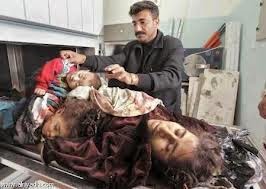Pakistan is a place where every one have found followers for his/her movement or revolution.now a days Mr.Tahirul Qadri trying to change Pakistan.Please study here about Pakistan.what is here to change? How we change? what is changeable?How many movements standing for change?who are strong here etc.I like to write about the communities of Pakistan they are trying to change on own ways of life and their backgrounds.Residents of Pakistan majority of Muslims but there are many cults.they have different school of thoughts and beliefs.they can not unite on one platform for revolution.DEOBANDIS 60%,SHIAS 15%,BARELVIS 35%,AHLEHADITH 5%,MOHDADI(Jamiat Islami) 20%(almost deobandis including) and LIBERALS 70%(claiming one of above beliefs but not like practices) etc......



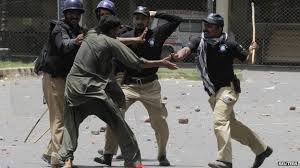

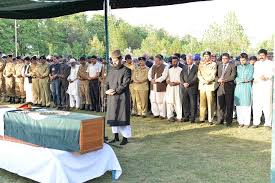

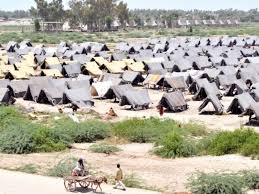

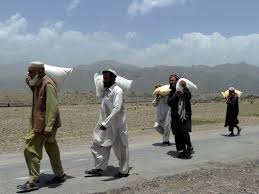
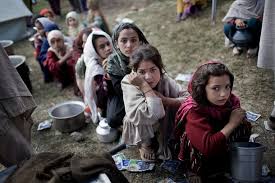
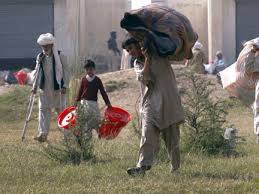




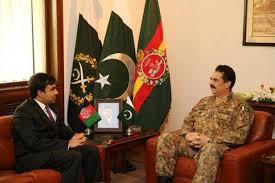







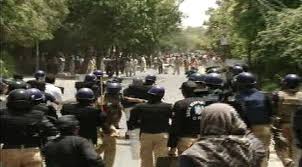
1.DEOBANDIS. Deobandis is a term used for a revivalist
movement in Sunni Islam (Ahlus-Sunnah wal-Jama'ah). It is
centered primarily in India, Pakistan, Afghanistan and Bangladesh and
has recently spread to the United
Kingdomand has a presence in South Africa. The name derives
from Deoband, India, where the
school Darul Uloom Deoband is situated. The movement was inspired by the spirit
of scholar Shah Waliullah (1703–1762), while the
foundation of Darul Uloom Deoband was The movement
developed as a reaction to British colonialism in India, which was
believed by a group of prominent Indian scholars — consisting of Rashid Ahmad Gangohi,Muhammad Yaqub Nanautawi, Shah Rafi
al-Din, Sayyid Muhammad Abid, Zulfiqar Ali, Fadhl al-Rahman Usmani and Muhammad Qasim Nanotvi — to be
corrupting the Islamic religion. They therefore founded an Islamic seminary
known as Darul Uloom Deoband. From here the Islamic
revivalist and anti-imperialist ideology of the Deobandis began to
develop. Gradually Darul Uloom Deoband became the second largest focal
point of Islamic teachings and research after the Al-Azhar University, Cairo, Egypt. Through
organisations such as Jamiat Ulema-e-Hind and Tablighi
Jamaat its ideology began to spread and the graduates of Darul Uloom
Deoband from countries like Saudi Arabia, China and Malaysia opened up
thousands of madrasas throughout South Asia, specifically in parts of
Afghanistan and Pakistan.
A large group of Deobandi scholars opposed Pakistan being
established along sectarian lines, particularly the demands of Muhammad Ali Jinnah's Muslim League for the Partitionof British
India into Muslim and non-Muslim sections.[8] The
Deobandi movement advocated a notion of a composite nationalism according to
which Hindus and Muslims constituted one nation.
Beliefs
http://www.darululoom-deoband.com/english/
|
 |
The Deobandi movement sees itself as a maslak, or scholastic
tradition, situated within orthodox Sunni Islam. It grew out of the Islamic
scholastic tradition of Medieval Transoxania and Mughal India, and it considers
its visionary forefather to be Shah Waliullah al-Dihlawi, the celebrated
Indian Islamic scholar and thinker of the eighteenth century.


2.SHIAS:The Shia represent the second
largest denomination of Islam and adherents of Shia Islam
are called Shias orthe Shi'a as a collective or Shi'i individually. Shi'a is
the short form of the historic phrase Shīʻatu ʻAlī (شيعة علي)meaning
"followers", "faction" or "party" of Muhammad's
son-in-law and cousin Ali, whom the Shia believe to be Muhammad's
successor in theCaliphate. Twelver Shia (Ithnā'ashariyyah) is the largest
branch of Shia Islam and the term Shia Muslim is often taken to refer to
Twelvers by default. Shia Muslims constitute 10-20% of the world's Muslim
population and 38% of the Middle East's entire population.
Shi'i Islam is based on the Quran and the message
of the Islamic prophet Muhammad attested in hadith recorded
by the Shia, and certain books deemed sacred to the Shia (Nahj al-Balagha).[3][4] Shia
consider Ali to have been divinely appointed as the successor to Muhammad, and
as the first Imam. In the centuries after the death of Muhammad, the Shia
extended this "Imami" doctrine to Muhammad's family, the Ahl
al-Bayt ("the People of the House"), and certain individuals
among his descendants, known as Imams, who they believe possess special
spiritual and political authority over the community, infallibility, and other
quasi-divine traits.
Although there are myriad Shi'i subsects, modern Shi'i
Islam has been divided into three main groupings: Twelvers, Ismailis andZaidis.




Beliefs
Imamate
Succession
of Ali
(MS
Arab 161, fol. 162r, AD 1309/8 Ilkhanid manuscript
illustration) Shia Muslims believe that just as a prophet is appointed by God
alone, only God has the prerogative to appoint the successor to his prophet.
They believe God chose Ali to be Muhammad's successor, infallible, the first caliph (khalifa,
head of state) of Islam. Muhammad, before his death, designated Ali as his
successor.
Ali was Muhammad's first cousin and closest living male relative
as well as his son-in-law, having married Muhammad's daughterFatimah. Ali
would eventually become the fourth Muslim (sunni) caliph.
After the last pilgrimage,
Muhammad ordered the gathering of Muslims at the pond of Khumm and it was there
that Shi'a Muslims believe Muhammad nominated Ali to be his successor. The hadith of the
pond of Khumm was narrated on 18th of Dhu al-Hijjah of
10 AH in the Islamic
calendar (March 10, 632 AD) at a place called Ghadir Khumm,
located near the city of al-Juhfah, Saudi Arabia.
Deffernces between SHIAS AND SUNNI
Religious
Leadership
Shia Muslims believe that the
Imam is sinless by nature, and that his authority is infallible as it comes
directly from God. Therefore, Shia Muslims often venerate the Imams as saints
and perform pilgrimages to their tombs and shrines in the hopes of divine
intercession.
Sunni Muslims
counter that there is no basis in Islam for a hereditary privileged class of
spiritual leaders, and certainly no basis for the veneration or intercession of
saints. Sunni Muslims contend that leadership of the community is not a
birthright, but a trust that is earned and which may be given or taken away by
the people themselves.
3.BARELVIS
Ahmed Raza
Khan Fazil-e-Barelvi 1856 –1921 CE or 10/10/1272__25/02/1340 AH, born & died Bareilly, UP), popularly known as Aala Hazrat, was a Hanafi Sunni, the leader of the Sunni Muslims and founded theBarelvi movement of South Asia. Raza Khan wrote on numerous topics, including law,
religion, philosophy and the sciences. He was a prolific writer, producing
nearly 1,000 works in his lifetime.
Beliefs
Ahmed Raza Khan's beliefs regarding
Muhammad include:
Muhammad, although human, possessed a noor (light) that predates creation.This contrasts with the Deobandi view that Muhammad was insan-e-kamil ("the complete man"), a respected but physically
typical human.
He is haazir naazir (can
be present in many places at the same time, as opposed to God, who is
everywhere by definition).
God has granted him ilm-e-ghaib (the
knowledge of the unseen).
Raza Khan wrote:
We do not hold that anyone can
equal the knowledge of Allah Most High, or possess it independently, nor do we
assert that Allah’s giving of knowledge to the Prophet (Allah bless him and
give him peace) is anything but a part. But what a patent and tremendous
difference between one part [the Prophet’s] and another [anyone else’s]: like
the difference between the sky and the earth, or rather even greater and more
immense.
—Ahmed Raza Khan, al-Dawla al-Makkiyya (c00), 291.
4.Ahle Hadith.
Ahl al-Hadith :The people of hadith) or (Așḥāb al-ḥadīṯ, is a term that has been used to refer to many Islamic movements (both historical and modern) that emphasize the use of hadith in Islam. It refers to the adherent's belief that they are not bound by taqlid (as are Ahl al-Rai, literally "the people of rhetorical theology"), but consider themselves free to seek guidance in matters of religious faith and practices from the authentic hadith which, together with the Qur'an, are in their view the principal worthy guide for Muslims.
In the contemporary sense, it refers to a reformist movement.The term Ahl al-Hadith is often used interchangeably with the termSalafi or as a branch of the latter movement.The Ahl al-Hadith are often called Wahhabis by their adversaries, though the movement itself claims to be distinct from Wahhabism. The movement has the most adherents in the Indian subcontinent, where it possesses some notable distinctions from the Salafi movement, most of whose adherents are found in the Arab world andIndonesia. The combined number of adherents in Bangladesh, India and Pakistan are estimated to range between 59-64 million.In the modern era, the movement draws both inspiration and financial support from Saudi Arabia
.

Practices
Like other Islamic movements, the Ahl al-Hadith are
distinguished by certain common features and beliefs. The men tend to have a
particular style of untrimmed beard often considered a visual indicator. In
regard to ritual acts of Muslim worship, the movement's practices are
noticeably different from the Hanafi legal school which predominates
in South Asia; the men hold their hands above the navel when lined up for
congregational prayer, raise them to the level of their heads before bowing,
and say "amen" out loud after the prayer leader.Due to their reliance
on the Qur'an and Hadith only and their rejection of analogical reason in
Islamic law, the modern-day Ahl al-Hadith are often compared to the older Zahirite school
of Islamic law, with which the Ahl al-Hadith consciously identify
themselves.
While their educational programs tend to include a
diverse array of Muslim academic texts, few adherents of the movement ascribe
themselves to one school of Muslimjurisprudence, placing a greater
emphasis on personal responsibility to derive judgments and ritual
practice. While the movement's figureheads have ascribed to the Zahirite
legal school, with a great number of them preferring the works of Yemeni
scholar Shawkani, the generality of the movement is described as
respecting all Sunni schools of Islamic law while preferring to take directly
from the Qur'an, prophetic tradition and consensus of
the early generations of Muslims.] While the movement has been compared to
Salafist movement in Arab nations and been branded as Wahhabist by
the opposing Barelwi movement, the Ahl al-Hadith remain
similar to yet distinct from Salafists.
5.Jamaat-e-Islami: ( JI) is a socially conservative, Islamist political
party. Its objective is to make Pakistan an Islamic state, governed
by Sharia law. JI opposes concepts such as capitalism, liberalism,
socialism and secularism as well as practices such as offering bank
interest. It promotes Islamic democracy as part of its main agenda.
JI is a vanguard party: its members form an elite, with
"affiliates" and then "sympathizers" beneath them. The
party leader is called an ameer.
JI was founded in Lahore in 1941 (then part of British
ruled India) by the Muslim theologian and socio-political philosopher, Abul
Ala Maududi.[4] In 1947, JI moved its operations to West-Pakistan after Independence.)(Members
who remained in India, formed an independent organisation called Jamaat-e-Islami
Hind).
In 1971, during the Bangladesh Liberation War, JI
opposed the independence of Bangladesh. However, in 1975, it established a new
branch, Bangladesh Jamaat-e-Islami in the new nation. The JI
maintains close ties with other international Muslim groups
.

6.Liberals
Some groups are liberals mind inPakistan but they have claims any one beliefs of above sectors but don't like to practices.












